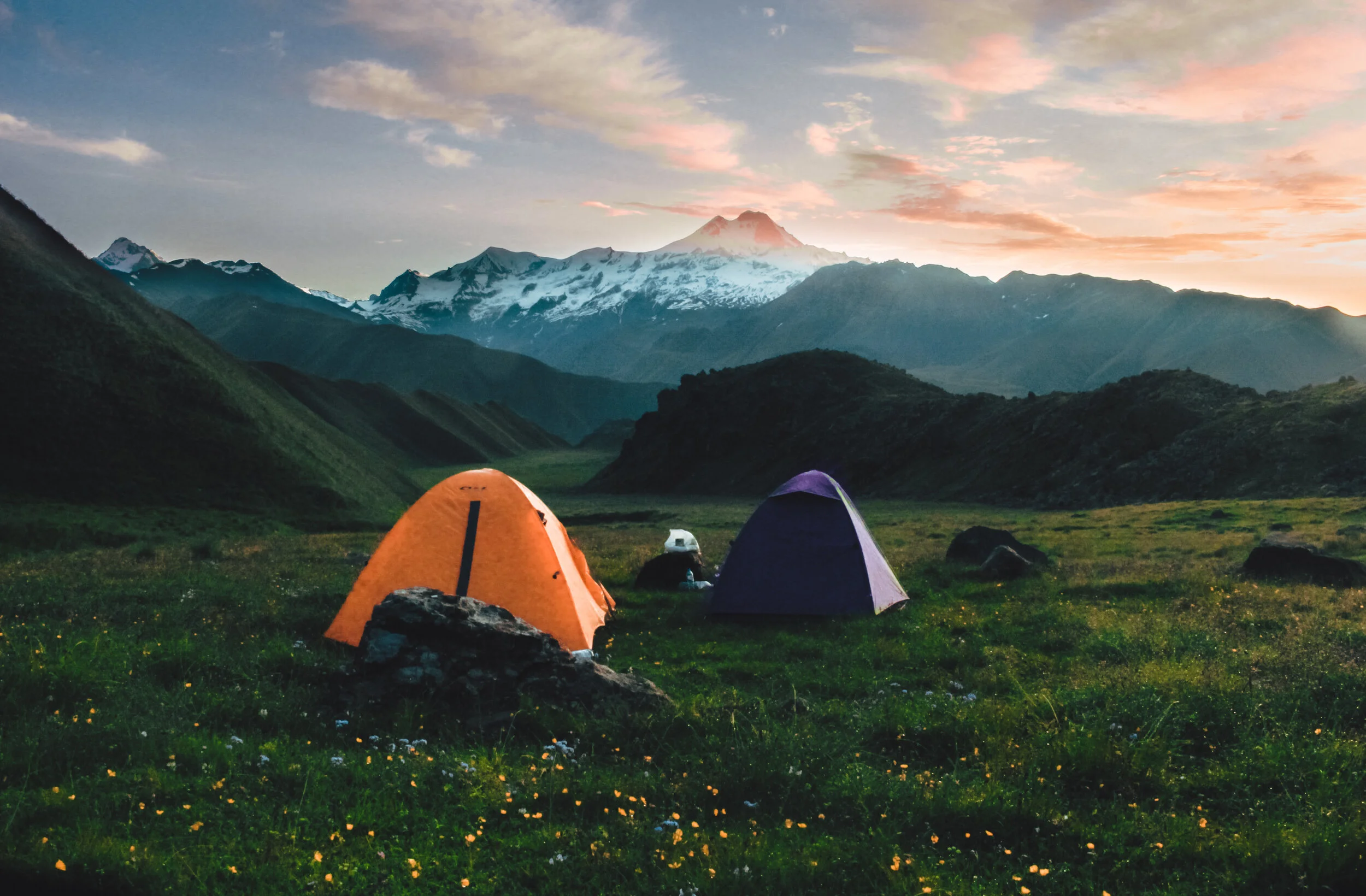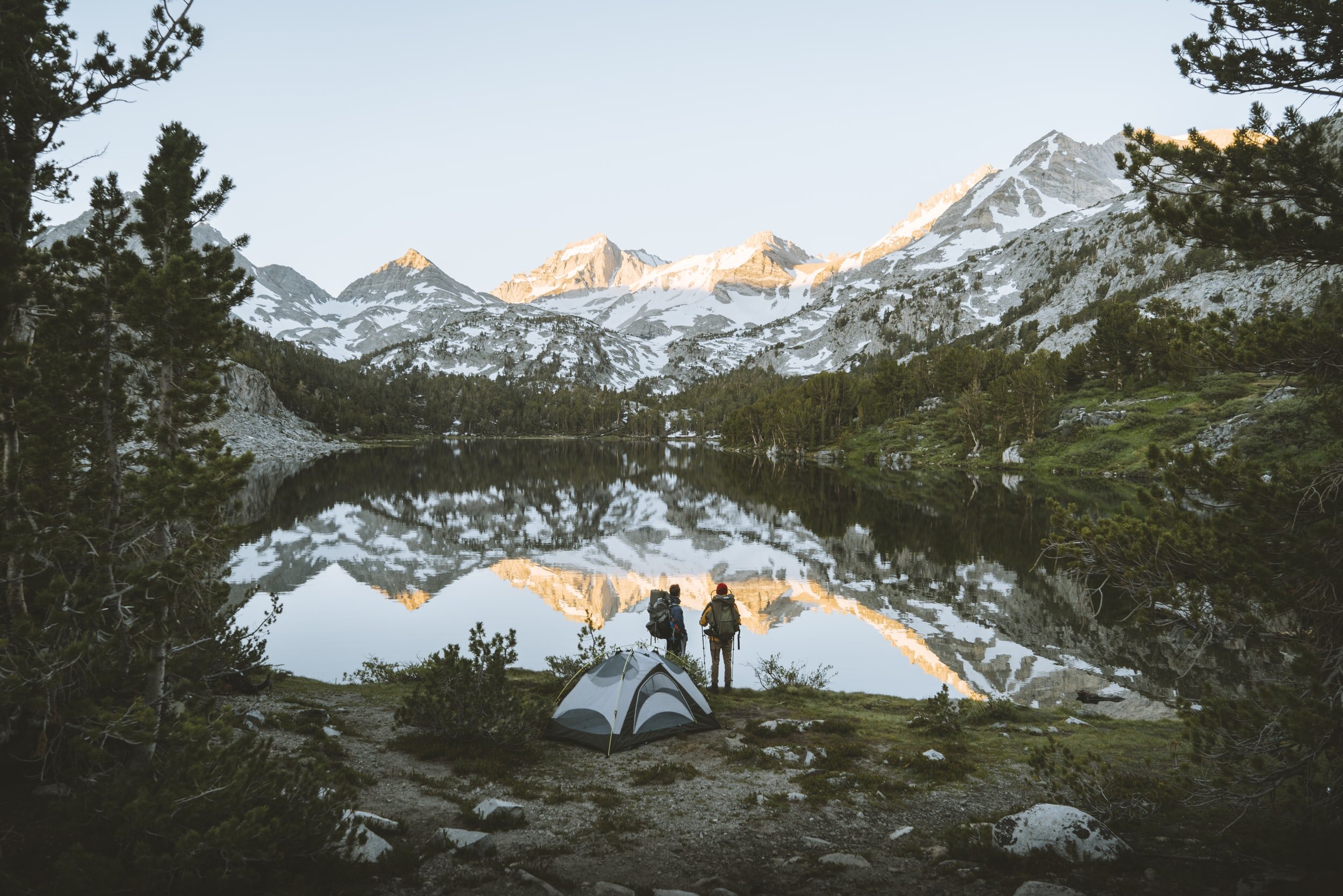The Ultimate Guide On How To Pick A Camp Spot
When it comes to backcountry camping, there’s nothing better than finding the perfect place to pitch a tent and enjoy the sights and sounds of nature. But as everyone should know, safety and responsibility is the name of the game. Ensuring you follow the rules and regulations while keeping our wildness clean and protected will allow future generations to enjoy the beauty of the natural world.
In this post, we’ll give you some tips on how to find the best places to backcountry camp and how to do so securely and reasonably. Take these tips and you’ll be on your way to an incredible camping experience!
Prepare For The Weather
There’s nothing that can sour an otherwise beautiful camping experience than bad weather. The good thing is this can easily be prevented by checking the forecast ahead of time to ensure you know what conditions to expect. If the location you want to camp at is forecasting storms, you can make the switch to another spot beforehand rather than having to do this after you arrive. Be sure to not only check for storms, but temperature as well. Showing up underprepared for hot or cold weather can not only be inconvenient, but dangerous as well.
Know Your Camping Gear
While this may seem like an obvious tip, understanding how to use the gear you bring along camping before leaving will be important when choosing a campsite. Learning the limitations of your gear and your ability is critical when setting up for your stay. If you don’t know whether your tent will withstand wet conditions, it’ll be very inconvenient to learn this on the trail. If your sleeping bag isn’t rated for winter weather, this can lead to a very cold and potentially dangerous nights stay. Knowing these things ahead of time can make a world of difference when figuring out where you want to camp.
Check For Permits
In some situations, you’ll be required to have a permit even for backcountry camping. This is something to check into before heading out as the penalties can be harsh and end in a ruined trip. Without a permit, you’ll likely be forced to leave, face a fine, or even jail time in severe cases. Doing a simple online search of where you plan to stay can help you determine whether a permit is necessary and will save you a lot of headache. Park Rangers do enforce these so preparation will go a long way.
Bring The Essentials
Making sure you have what you need for an extended camping trip will help ensure a smooth and pleasant experience out in the backcountry. Don’t be caught out in the wild without the proper essentials as this can damper an otherwise wonderful experience. We’ve got another post to check out that goes over 9 Camping Essentials you should bring along on every trip!
Pick A Level Camping Spot
A seemingly small but very important step to take, you may not think of it when you do it–but you’ll know when you don’t. Finding a spot with even ground that doesn’t slope or have lots of bumps is ideal for setting up a campsite. Sleeping in a tent on an incline is an experience you won’t soon forget and if you’re sharing the tent with anybody, they won’t forget either. It will also be a much more pleasant experience if you’re not tripping over rocks and roots while walking around your campsite.
Check For Possible Dangers
Camping is our way of reconnecting with the wild so long as we remember it’s still the wild. This means there are many possible dangers to consider that we don’t normally have to think about. Checking for wild animals, poisonous insects, and hazardous plants is now a necessary function in order to keep yourself safe and protected. Take a walk around your campsite and look for dead or rotting trees that have potential to fall down or depressions in the ground that could fill with water and cause flooding. The best time to stop a problem is before it happens.
Think About Water
Since you’ve read our article on 9 Hiking Essential (right?), you know that water is an important item to have along. However, if you’re camping in the backwoods, setting up near a stream or creek can provide you with extra water for drinking, cooking, and cleaning. On the flip side, camping too close to one of these water sources can result in disaster if an unexpected rainstorm turns that babbling brook into a raging torrent. A good rule of thumb is to camp 200 feet away from a water source to keep yourself safe and out of harms way.
Fire Restrictions
Just like camping permits, disobeying fire restrictions has the potential to get you into a messy situation. Checking ahead of time whether restrictions are in place will save you from incurring any possible fines or worst–causing a forest fire. Park Rangers will be on high alert when fire regulations are in place and may even notify you if they see you ahead of time.
Leave No Trace
Once you’ve finished your camping adventure, it’s important to return the campsite to the condition you found it in. Picking up any trash, disassembling any structures you may have built, and carrying out any food and toiletries you brought in will help ensure your camp spot will be able to serve the next travers who wander through.
Conclusion
With these tips, you’ll be well on your way to safe and comfortable backcountry camping. Preparation is the most important part of any trip and will help avoid any potential problems you could encounter.










